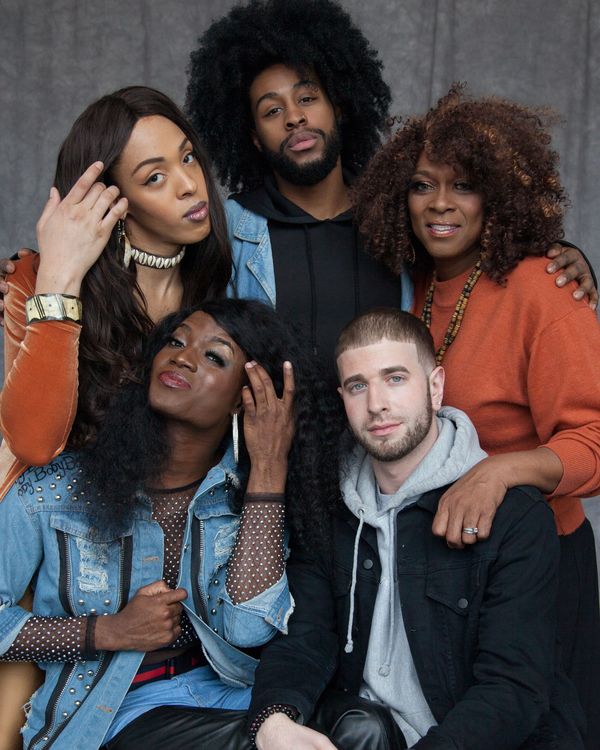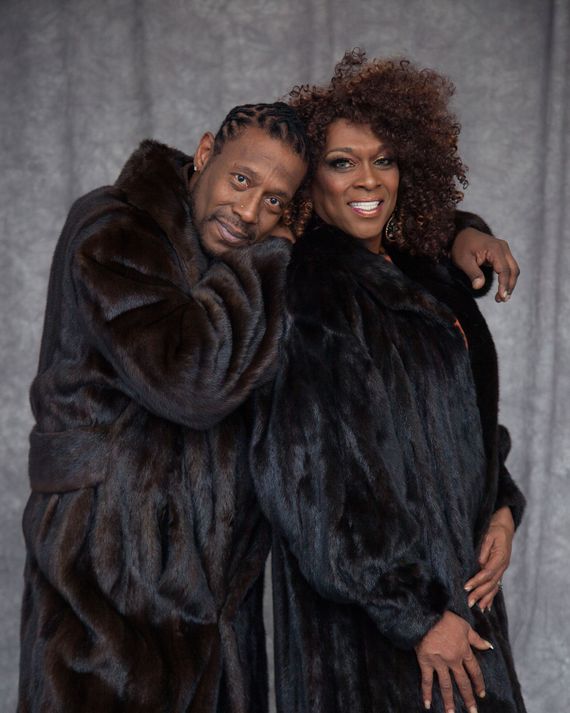
In the world of drag, many aspiring queens are taken under the wing of a “mother” for makeup lessons, guidance, and support. The harsh reality for a lot of young LGBTQ people includes being exiled from their homes; in chosen families like these, they can find the support their blood-related families and society deny them.
The House of LaBeija is the oldest and most revered house in New York’s drag and ballroom scene, where members of competing houses walk the runway and vogue battle in glamorous looks, posing the house down for a roaring audience that celebrates the freedom of expression, femininity, and queerness. The house was founded in 1977 by legendary queen Crystal LaBeija, who wanted to foster an environment in which her black and brown sisters could live their truth and didn’t have to lighten their faces with makeup to fit into a discriminatory standard of beauty; it rose to more mainstream fame in the ’80s and ’90s after being featured in Jennie Livingston’s Paris Is Burning.
During that time, Crystal passed the torch to Pepper LaBeija, who became the new mother of the house. Pepper’s ballroom husband Tommie supported her every step of the way. In turn, the pair paved the way for drag and ballroom, mentoring and supporting countless young gay, trans, and queer people of color as parental figures for the house. “We took these kids into our homes when their mothers and fathers found out that they were gay, and they had nowhere to live,” Tommie LaBeija recalls. “Some of the parents of houses weren’t economically sound, but what little they had, they were willing to share and help get them on their feet to navigate life, the ballroom, or whatever the case may be.”
In 2019, after 50 years of excellence, Kia LaBeija is the mother of the house. Although it now has over 100 members all over the world, with chapters in Paris, Mexico, and even Russia, the strength of its familial support is stronger than ever. The Cut spoke to a few members of the house about being a part of this legendary family.
Egyptt LaBeija, Member for 5 years
“They call me Auntie. People in the house call me their mother even though I’m not technically their mother. But I love the house and the kids that are in the house, so if they want to call me auntie, grandma, give me any name you want. The thing is this family is more than just the balls. We do things together. We talk to each other. We communicate. If someone has a problem with school, with their job, with the place they live in, they can call to talk about it. We always try to figure out how to navigate through all of it. It’s all about family. It’s not just for the name because it’s more than just a name. “LaBeija” is sunshine. We like to make sure that everything grows. In order for it to grow, we have to treat it like family.”
LeFierce LaBeija, Member for One Year
“Being a part of the house of Labeija is like my whole damn life. Without them, I would not have a reason to really work well. They motivate me. It’s more than the ballroom and voguing. It’s a family. There’s not one day that can pass without all of us interacting, calling each other, and hanging out.”
Linda LaBeija, Member for 7 years
“The house is just overall supportive, especially Tommie. It’s been really wonderful to actually have a father figure to admire and to respect greatly. I’ve always sought out chosen family. I was in foster care when I was younger, so my family’s always been like really just dismembered and spread out. So I’ve always leaned toward a chosen family. Especially being queer, I think it’s something that naturally we just do. You find you find your tribe.”
Thunder LaBeija, Member for 6 Months
“If your house isn’t your family, then what are they to you? When you’re in your house, it should feel just like that. You should feel safe. You should feel supported, and you should feel that comfort. I’m with my them at least three or four times a week, and I feel like that bond is well needed. If I don’t have that bond with them, then what’s the point of being called a family? Us having a bond outside of the ballroom scene is where we learn more about each other. I have a big, beautiful, and dysfunctional family.”
Malibu LaBeija, Member for 6 Months
“There aren’t as many Caucasian people involved in the scene, and I had to be very wary of myself because I didn’t want to give someone the impression that I was there for the wrong reason. But once I opened myself up and let myself be vulnerable, they started to become vulnerable with me too. I got out of the nightlife scene in New York going out constantly to these parties where everything is surrounded in like male toxicity, and voguing really does allow you to kind of let go of that. We hang out, and do things outside of balls. After practice we go eat and get drinks. It really is about kind of finding ways to kind of find that common ground between each other. We are a family.”





